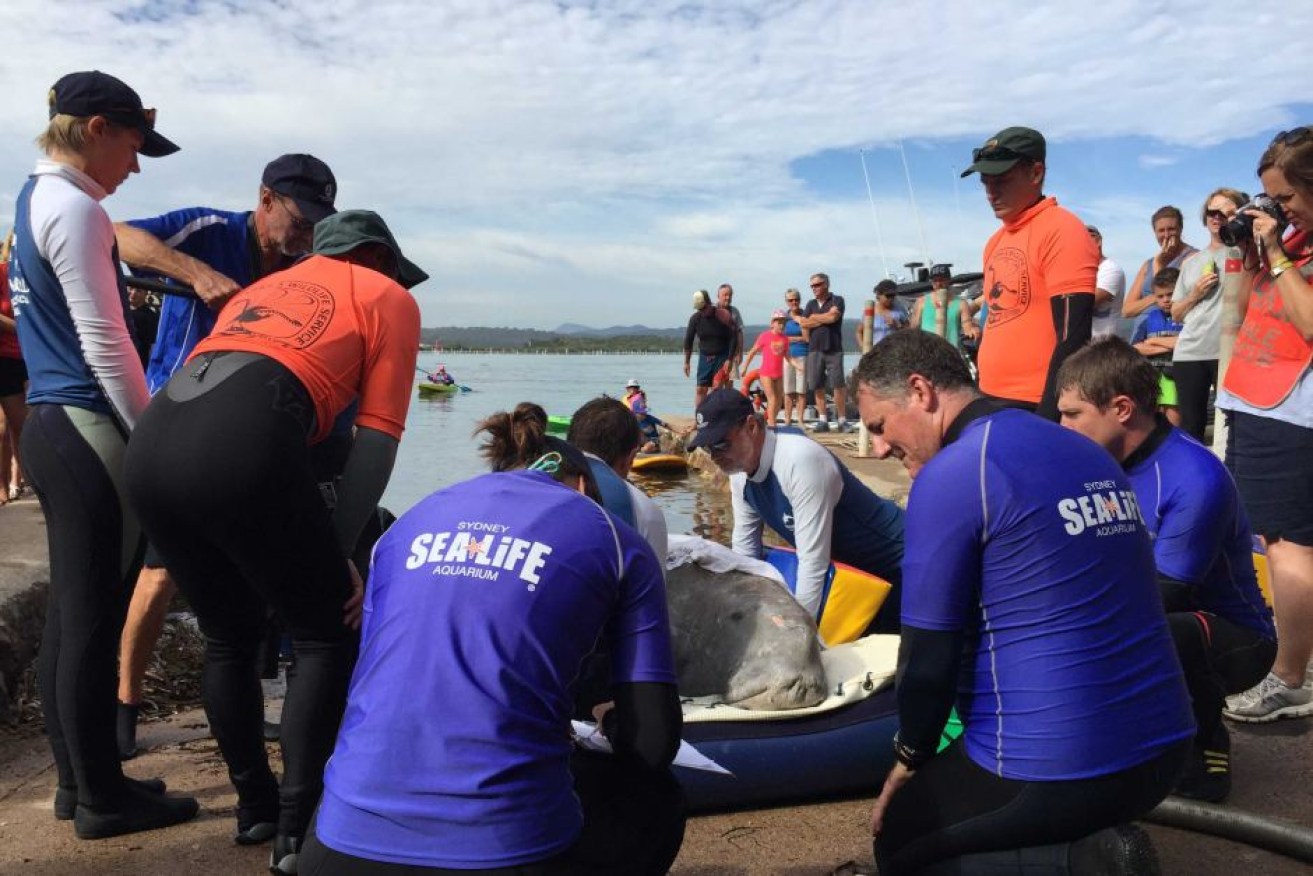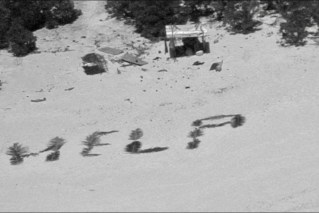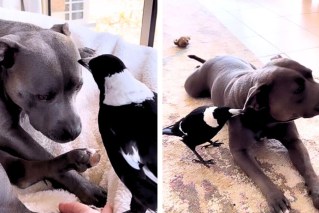Rescued dugong relocated to waters off Brisbane

Marine experts feared cooling temperatures and a lack of food would eventually prove fatal for the dugong. Photo: Alice Matthews/ABC
A dugong has been relocated to Brisbane’s Moreton Bay after being found living in cool waters off the southern coast of New South Wales.
The 2.7-metre dugong named Merimbula – after the town where it was found – was taken by boat from Sea World on the Gold Coast on Thursday morning and released off Brisbane.
Sea World director of marine science Trevor Long said it was a rewarding release given the vulnerable status of the species.
• Sickly dugong rescued from cool waters in NSW
• Tourist gets up close and personal with massive crab
• Zoo staff wear panda costumes to trick baby cub
Dugongs live in tropical or subtropical waters and eat sea grass.
It is thought Merimbula travelled south on ocean currents and would not have survived.
There is an established population of about 1000 dugongs in Moreton Bay and Mr Long is confident the male has a strong chance of survival in Queensland’s subtropical waters.
“After two weeks of rehabilitation in our vet centre, Merimbula’s health and skin condition improved and he was ready to be released,” he said.

The 2.7-metre dugong was taken by boat from Sea World on the Gold Coast and released off Brisbane. Photo: Sea World
Capturing the 340-kilogram mammal in Merimbula Lake and then transporting it interstate involved a coordinated response from a large number of stakeholders.
They included the New South Wales National Parks and Wildlife Service, Sea World, Sydney Aquarium, and the Royal Australian Air Force, who flew the animal to the Gold Coast.
The dugong was first sighted in the saltwater lake three months ago and marine experts feared cooling temperatures and a lack of food would eventually prove fatal.
Queensland Environment Minister Steven Miles said the dugong was tested for a range of contagious diseases. All tests came back negative.
“Prior to the release, Merimbula was fitted with a neutrally buoyant satellite transmitter to track his movements,” Dr Miles said.
“We are confident the transmitter will provide valuable information on his movements after his release.”

There is an established population of about 1,000 dugongs in Moreton Bay, where Merimbula was released. Photo: Sea World

After two weeks of rehabilitation in a vet centre, Merimbula’s health and skin condition improved. Photo: Sea World

Marine experts feared cooling temperatures and a lack of food would eventually prove fatal for the dugong. Photo: ABC

The 340kg dugong was assessed by marine experts at Merimbula Lake on the New South Wales far south coast in January. Photo: ABC
-ABC








